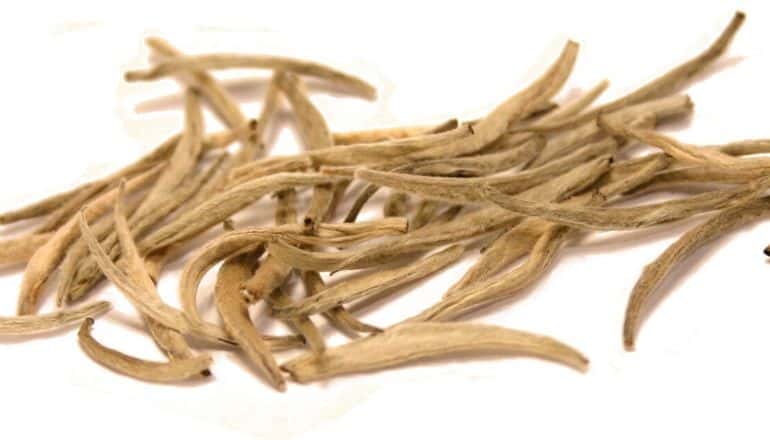*This Article May Contain Affiliate Links* See our Affiliate Disclosure for more Info
Welcome, tea lovers! In this blog post, we delve into the soothing world of white tea and caffeine. With its delicate flavor and low caffeine content, white tea offers a delightful alternative to other caffeinated beverages. Join us as we explore the benefits, brewing techniques, and the perfect cup of white tea for your peaceful moments. So grab your favorite teacup and let’s embark on a journey of flavor, relaxation, and the gentle blend of white tea and caffeine.
Looking For Your Next Favorite Tea? Check Out The Great Teas, Blends, and Herbal Infusions, Available On Amazon. They have teas for every taste and occasion.

Table of Contents
The Caffeine Content in White Tea
White tea is naturally low in caffeine. This is primarily due to the part of the plant that is used to produce white tea – the young buds and leaves. These parts of the tea plant contain less caffeine than the mature leaves used to produce other types of tea.
The caffeine content in white tea can vary depending on several factors, including the specific variety of tea, the time of harvest, and the exact brewing method used. However, on average, an 8-ounce cup of white tea contains approximately 15-30 milligrams of caffeine. This is significantly less than a cup of coffee, which typically contains around 95 milligrams of caffeine.
The Brewing Process: A Factor in Caffeine Content
The brewing process also plays a role in determining the caffeine content of white tea. White tea is typically brewed at a lower temperature and for a shorter time than black or green tea. This results in a gentler extraction process, which can lead to a lower caffeine content in the final brew.
It’s important to note that while brewing time and temperature can affect the caffeine content, they also play a significant role in developing the flavor profile of the tea. Brewing white tea at a lower temperature helps preserve its delicate flavors and aromas.
The Benefits of Low Caffeine
The low caffeine content of white tea makes it an excellent choice for those who are sensitive to caffeine or looking to reduce their caffeine intake. It provides a gentle lift without the jitteriness that can come with higher-caffeine beverages.
Moreover, because it’s low in caffeine, white tea can be enjoyed at any time of day – from a refreshing morning brew to a calming evening cup. It’s also an excellent choice for those who enjoy multiple cups of tea throughout the day but want to avoid consuming too much caffeine.
White Tea Caffeine Compared To Other Teas And Coffee
- White Tea Caffeine: White tea is known for its delicate flavor and is naturally low in caffeine. The caffeine content in white tea can vary depending on several factors, including the specific variety of tea and the brewing method used. An 8-ounce cup of white tea contains approximately 15-30 milligrams of caffeine, from mayoclinic.org.
- Coffee is a popular beverage known for its high caffeine content. The exact amount of caffeine in coffee can vary based on factors such as the type of coffee bean and the brewing method. According To Healthline.com, an 8-ounce cup of coffee contains around 95 milligrams of caffeine.
- Green tea is another popular choice among tea drinkers. Like white tea, green tea is relatively low in caffeine. The amount of caffeine in green tea can vary depending on factors such as the type of tea leaf and the brewing method.
- Black tea tends to have a higher caffeine content compared to white and green teas but is still lower than coffee. The amount of caffeine in black tea can vary depending on factors such as the type of tea leaf and the brewing method. On average, an 8-ounce cup of black tea contains around 47 milligrams of caffeine, according to the Mayo Clinic.
That’s A Wrap On White Tea And Caffeine
White tea offers a unique combination of delicate flavor and low caffeine content. Whether you’re looking for a gentle morning pick-me-up or a soothing afternoon brew, white tea is a wonderful choice. Its naturally low caffeine content makes it a versatile beverage that can be enjoyed by both regular tea drinkers and those sensitive to caffeine.